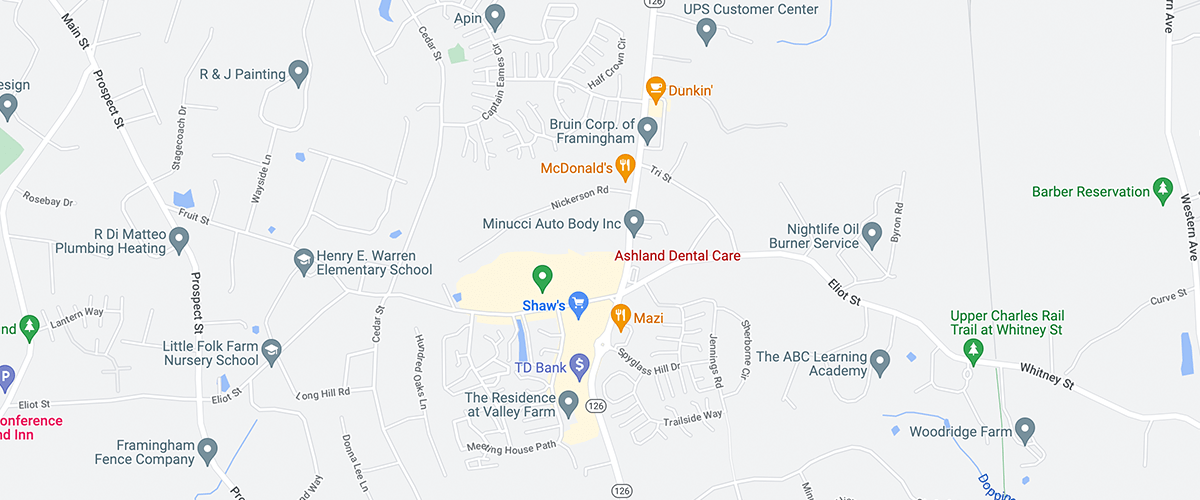How does a tooth decay?
August 14th, 2024

When acids are allowed to erode tooth enamel long enough to leach calcium and other minerals from your enamel and dentin, a process called demineralization occurs. This rapidly leads to tooth decay unless reversed by good oral hygiene and professional dental cleanings at our Ashland office. Acids responsible for tooth decay come from the wastes of mutans streptococci and lactobacilli bacteria that thrive in dental plaque, a substance that is the leading cause of periodontitis.
Where do demineralizing acids come from?
Dietary sugars comprise the bulk of tooth-decaying acids, including table sugar, cooked starches, fructose, glucose, and lactose. In fact, as soon as you bite down on a sugary cookie or into a French fry, bacteria start digesting sugars, breaking them down and eventually excreting them as demineralizing acids. As this bacteria colony grows and becomes organized, plaque develops and forms that tough, yellowish coating you often see on the tops of teeth at the gumline.
Plaque is the Problem
Dental plaque is a filmy type of nesting place for bacteria that also keeps acids pressed against tooth enamel. Since plaque cannot be removed by brushing, it is important that a person who suffers tooth decay visit Ashland Dental Care immediately so we can use special tools to scrape and thoroughly clean teeth.
Signs of Tooth Decay
Early tooth decay and cavities remain asymptomatic until demineralization creates a hole deep enough to reach the tooth’s inner tissues and nerve endings. Eventually, tooth decay will cause tooth sensitivity, toothache, vague pain when biting down on the affected tooth, and possibly pus seeping around a tooth’s gum line if the decay creates an infection. If treatment is delayed long enough, a decaying tooth may loosen, crumble, and ultimately fall out, which leaves an empty or partially empty socket.
Preventing Tooth Decay
Getting regular checkups with our doctor, brushing and flossing twice a day, and eating fruits or crunchy vegetables at snack time instead of a candy bar or doughnut are the three best ways to keep your teeth healthy, white, and where they should be: in your mouth.



